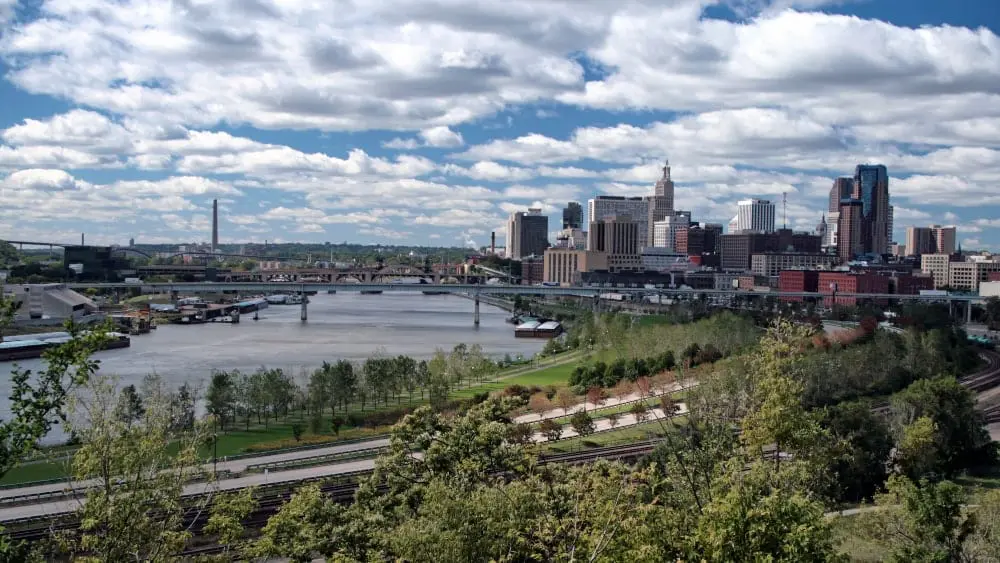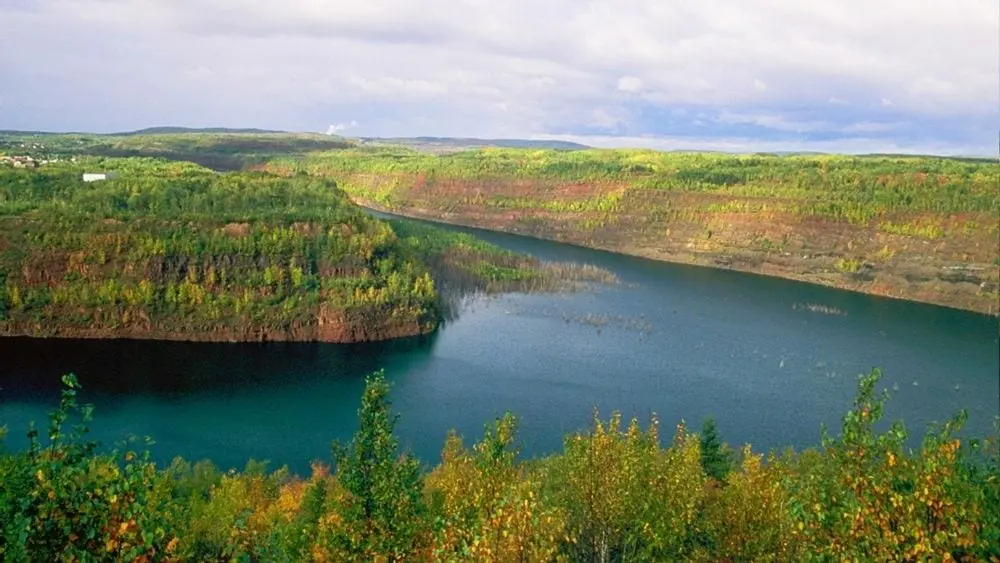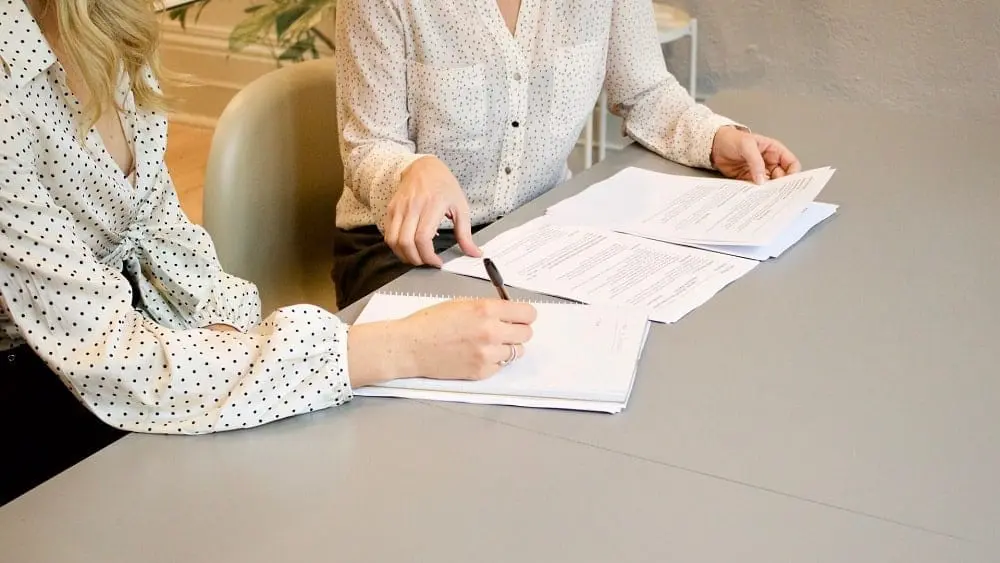
Packed with Midwestern charm and the perfect mix of small towns and bustling cities, it’s hard to beat life in Minnesota. But if you’re a homebuyer buying property in the North Star State, make sure you’re saving up not just for a down payment but for closing costs, too even if you want to build a house in Minnesota.
Most homebuyers fixate on their down payment and overlook closing costs. A 2017 poll found that 35 percent of Americans are caught off guard by the high costs. Another 17 percent didn’t even see this expense coming, according to a survey conducted for ClosingCorp, which provides research on the U.S. real estate industry.
In a nutshell, closing costs cover all the fees homebuyers must pay on closing day, including loan- and service-related fees. Plan to start saving more because all in, closing costs amount to 2 percent to 5 percent of the home’s purchase price, paid alongside your down payment.
Closing costs vary by state, so here’s a closer look at what you can expect to pay in Minnesota, what’s typically included, and how you can potentially lower these costs.
How Much Are Closing Costs in Minnesota?
Closing costs in Minnesota are, on average, $2,331 for a home priced at $213,342, according to a 2021 report by ClosingCorp. That price tag is about 1.09 percent of the home’s price.
The North Star State is in the middle of the pack when it comes to closing costs, placing 30th with the most expensive closing costs in the country. Overall, it’s safe to say closing costs are cheaper in the Midwest – Missouri, Indiana, Iowa, South Dakota, and Wisconsin are among the top 10 states with the lowest closing costs. In Missouri, for example, closing costs are a mere $1,290 for a home priced at $177,915. For comparison’s sake, the national average is $6,087.
But homebuyers in Minnesota should expect to spend far more than ClosingCorp’s estimates. That’s because their data excludes major expenses. For example, loan origination fees and private mortgage insurance – if you don’t have a 20 percent down payment. Both expenses easily add thousands of dollars to your closing costs bill.
Home values have also increased in Minnesota: in 2021, the average sale price for single-family homes in the state sat at $352,687, up 12.5 percent from the year before, according to Minnesota Realtors. If homebuyers are aiming to earmark 2 to 5 percent of their home’s purchase price on closing costs, you may need to spend $7,053 – $17,634.
Keep in mind, overall closing costs are tied to the home’s price.
What’s Typically Included in Minnesota’s Closing Costs?
Closing costs can be grouped into three categories: property-related fees, mortgage-related fees and annual fees. Here’s what to expect for Minnesota:

Loan Origination Fees
If you take out a mortgage, you’ll incur a loan origination fee. The lender is charging you a fee to apply for and open a mortgage account. This fee includes everything from setting up your home loan application, underwriting, preparing preapproval letters for your house hunting and processing your funding at closing. Loan origination fees are usually around 0.5 percent to 1 percent of your loan.
Credit Report Fee
Your lender needs to conduct a thorough credit check before approving you for a home loan. Part of this includes pulling your credit report to look at how you’ve managed your existing debts. Your lender will bill you for the full cost. If there are two borrowers, double this cost because the lender will pull both applicants’ reports.
Private Mortgage Insurance
Homebuyers who aren’t providing a 20 percent down payment will need to pay for private mortgage insurance, or PMI, to qualify for a conventional loan. While the homebuyer is the one paying for the insurance, the coverage protects the lender in case of loan default. Once you pay off 20 percent of the home, you can apply to eliminate this coverage.
PMI typically ranges from 0.25 percent to 2.25 percent of the outstanding loan balance, depending on the size of the down payment and credit score.
Attorney Fees
You may decide to hire a real estate attorney to help with legal documents, especially property transfer documents. Your agent may even recommend that you recruit a lawyer if your home purchase is a complex one, such as if you’re buying from out of state, the property has physical damage, or you’re buying a foreclosed home.
An attorney can draft your purchase agreement, certify deeds, and review your title examination and title insurance policy. Attorney fees will vary, depending on where you are in the state and what services you require.
Escrow Fees
You may decide to hire a title company or escrow agent. The title company will set up an escrow account to hold onto your funds, such as your earnest money deposit and payments for property taxes and homeowner’s insurance. This way, the seller (and the various vendors you’ve hired) won’t receive any funds until you and the seller have met all the conditions on the home sale.

Title Search
One expense in the homebuying process is paying for the title examination. In this process, historical records like deeds, court records, property indexes are reviewed to ensure the seller has the right to transfer ownership of the home. This safeguards you from potential ownership disputes later.
A title search will also verify that the property has no outstanding unpaid taxes, judgments, or lawsuits in progress.
Title Insurance
Once the title search is complete, you’ll need to purchase title insurance policies for both you and your lender.
The title insurance covers you, including paying for all court costs and related fees, should something go awry. Homebuyers are typically on the hook for paying for both policies in Minnesota. This type of insurance is a one-time expense, and the policy is in effect until you sell the property.
Appraisal
Before the lender issues your mortgage, they’ll send a third-party appraiser to evaluate the home and ensure it is priced at the right value — and as the buyer, you’ll cover this fee. The appraiser will scan the home, its dimensions, and condition to see how it stacks up to similarly priced homes in the community and to determine its fair market value. If you default on your mortgage, the lender knows it can recoup its costs.
Home Inspection
Homebuyers must hire a home inspector who will scrutinize your potential new home from the foundation to the roof. This is a crucial step before you make the biggest purchase of your life.
Listen to the feedback from your inspector who will flag any existing issues or ones that may surface in the coming years. With this intel, you could ask your seller to knock the price point down to factor in repairs before finalizing the deal.
Real Estate Transfer Tax
Whenever real estate changes hands, buyers and sellers need to account for a real estate transfer tax as part of their closing costs. Sometimes it’s called a deed tax, a mortgage registry tax, or a documentary stamp tax.
Minnesota’s House Research Department states that homebuyers are responsible for covering the mortgage registry tax, while the seller typically pays the deed tax. This isn’t set in stone; either tax could be reassigned depending on how negotiations go on the home sale.
The MRT rate is 0.23 percent of the homebuyer’s mortgage, while the deed tax is 0.33 percent of the property’s sale price.
Annual Fees

Property Taxes
Your first six to 12 months of property taxes will need to be collected with your other closing costs. This means it must be paid for in cash at closing and can’t be rolled into your mortgage.
In Minnesota, homeowners pay, on average, 1.04 percent of their home’s assessed market value in property taxes, according to the Tax Foundation, a decades-old tax policy non-profit. The rate varies, depending on county taxes levied.
Count on paying for property taxes twice a year, each May and October, according to the Minnesota Department of Revenue.
Homeowners Insurance
Before the lender issues funding, you’ll need to pay your first year of homeowners insurance. It’s another prepaid expense that will be a recurring annual cost, just like your property taxes.
This insurance will cover any physical damage to your home caused by fire, wind, vandalism, or theft. Check on whether you may need any extra policies, such as flood insurance. And you may want to consider extra insurance for expensive art, furs, or family heirlooms.
Homeowner Association Fees
About 37 percent of Minnesota homeowners are members of a homeowners association, so you may have to factor HOA fees into your closing costs.
HOA fees cover the costs of maintaining the community, from trash removal and security to managing amenities like clubhouses, fitness centers, and community parks. If your HOA has more bells and whistles, you should expect to pay more.
If you’re eyeing a property, ask about HOA fees upfront so you know what you’re getting for this cost.
How Can I Lower My Closing Costs in Minnesota?
If you’re looking for ways to lower your overall closing costs bill, here are some key strategies to consider.
Closing Cost Assistance

Making use of homeownership assistance programs in Minnesota is the single most efficient way to reduce costs.
The Minnesota Housing Finance Agency, for example, runs several home loan programs for eligible first-time and repeat homebuyers. If you qualify for a Minnesota Housing mortgage, you may be eligible for a down payment and closing cost assistance of up to $17,000 via a second mortgage or deferred payment loan.
Look into local homeownership assistance programs, too. From Dakota County to St. Louis County and Minneapolis, closing cost assistance is available for eligible homebuyers.
Get Your Finances in Shape
You’ll be paying your home loan for the next few decades, so your goal is to secure a low interest rate. Pay down your debts. Remember to make your payments – on or before the due date – and avoid skipping a payment. Doing so will demonstrate that you’re a low-risk borrower, and hopefully, you’ll secure a competitive rate, which will save you thousands over the lifetime of your loan.
Save as much as possible for your down payment. The closer you get to the 20 percent threshold, the less you’ll have to pay in private mortgage insurance.
Comparison Shop
Some fees, such as an appraisal, are set in stone, but you can shop around for others. Choose your service providers wisely, whether you’re shopping for a title company, home inspector or lender. Read reviews from previous customers, ensure your service providers are appropriately accredited, and then look at price points so you know you’re getting the best deal.
Seller Concessions
With no hard and fast rules on who pays for what, there is always wiggle room when you’re negotiating with your seller on closing costs — unless you’re in a seller’s market.
Don’t shy away from negotiating with your seller. If you’re buying a new construction home but need to pay for upgrades, you may be able to work out a deal with your builder to pay your closing costs. If you’re buying an existing home, ask the seller to cover portions of your closing costs to pay for any necessary repairs.
Negotiate Fees

When you receive your closing paperwork, carefully read the Closing Disclosure. As closing day approaches, make sure there aren’t additional charges or an increase in fees that you didn’t agree to.
If you have a longstanding relationship with your lender and your existing accounts are in good standing, you could ask them to omit certain expenses from the final bill, such as rate lock fees, loan processing fees and broker rebates. You could also ask to stagger these expenses, so they’re paid throughout the homebuying process instead of all at once at closing.
Adding Closing Costs to Your Home Financing
If you don’t have the upfront cash to cover your closing cost expenses, you may be able to roll this cost into your home loan. This means you’re off the hook for paying for these expenses on closing day, but you’ll make up for it via monthly mortgage payments that will be a bit higher. Ultimately, you’re paying interest on the closing costs tacked onto your first mortgage.
Check with your lender to see if this option is available.
No-Closing-Cost Mortgages
Some homebuyers can opt into a “no-closing-cost” mortgage as a strategy to keep this expense at a minimum. In this case, your lender agrees to pay for part or all your closing costs, but you in turn pay a higher interest rate.
Do the math on this scenario before you opt for this route. In the long run, it could cost you more money because of the bump in your interest rate.
Other Minnesota Resources

Carmen Chai is an award-winning Canadian journalist who has lived and reported from major cities such as Vancouver, Toronto, London and Paris. For NewHomeSource, Carmen covers a variety of topics, including insurance, mortgages, and more.
 Top 10 Most Affordable Cities in Minnesota
Top 10 Most Affordable Cities in Minnesota